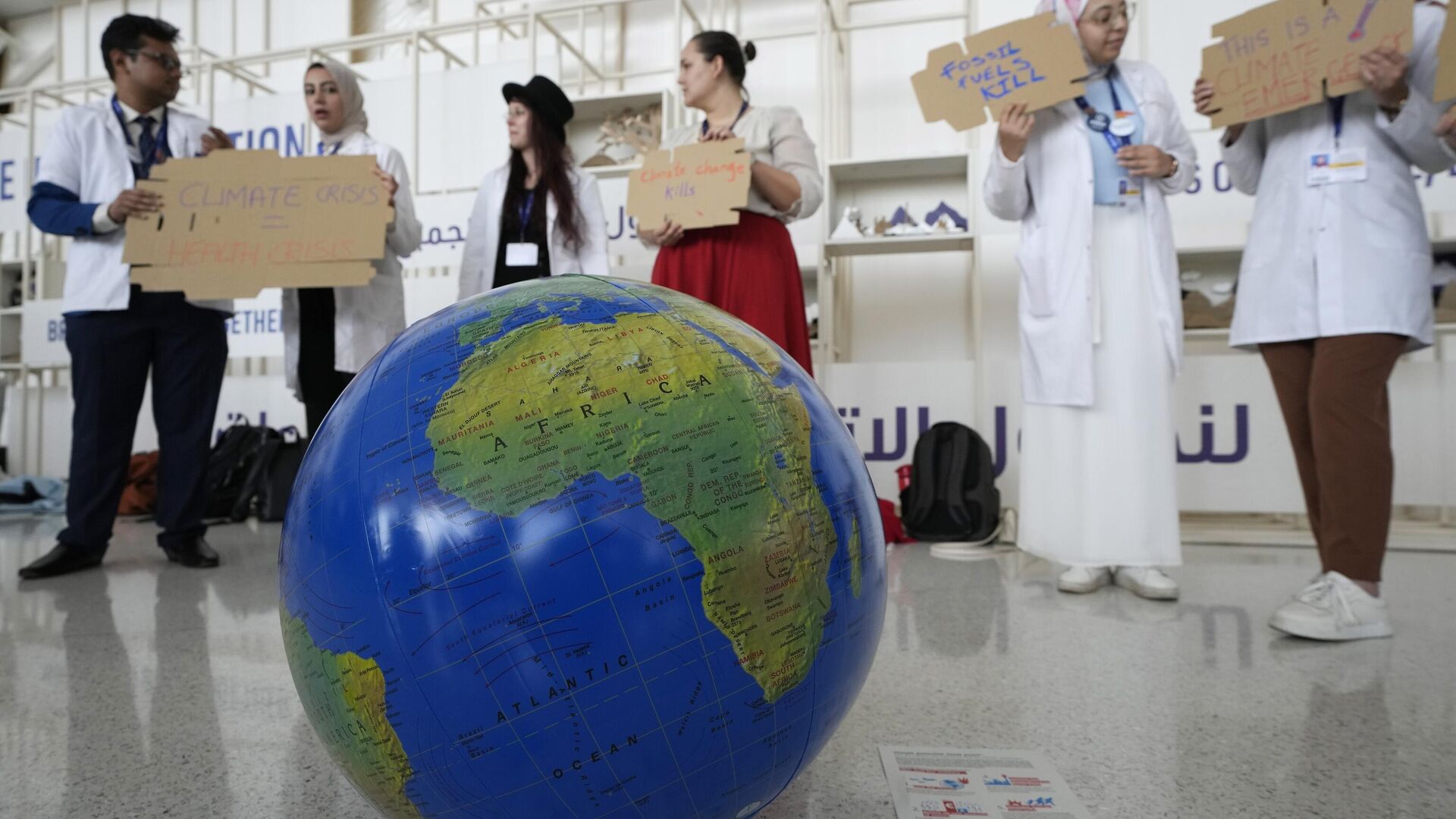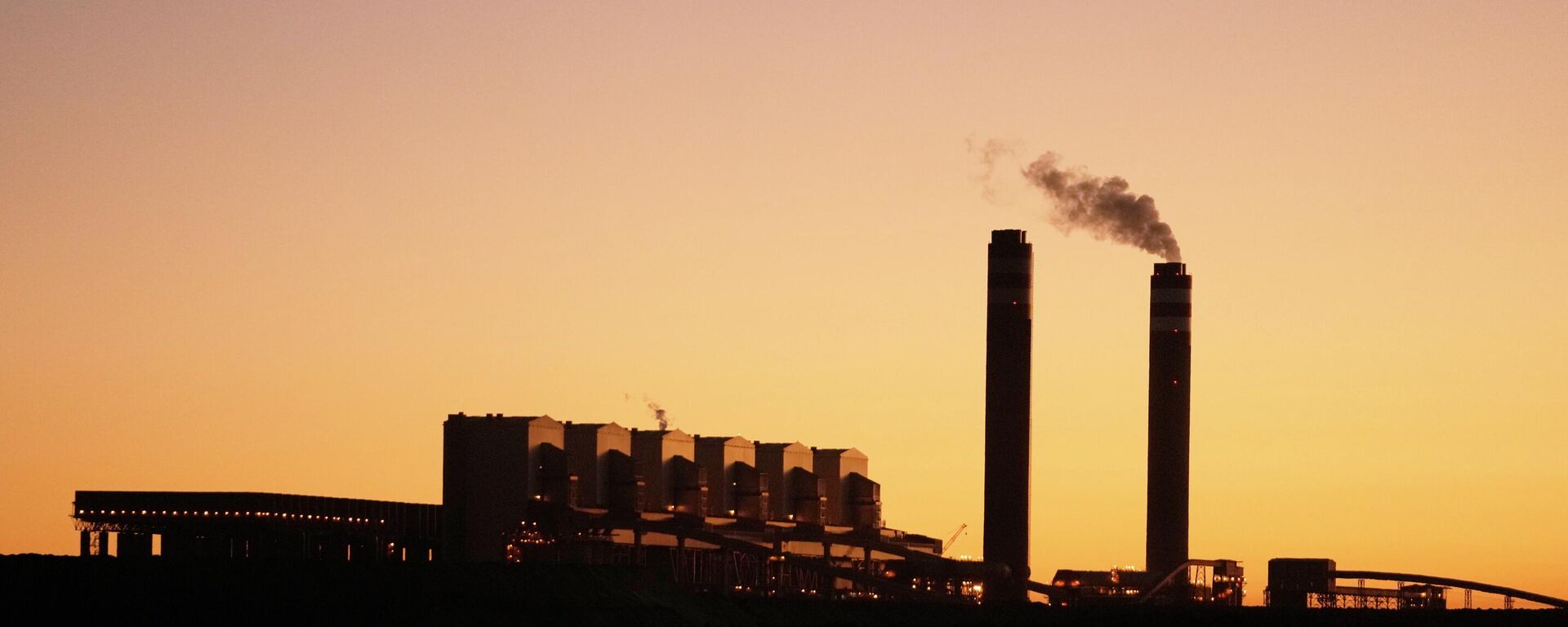https://en.sputniknews.africa/20231203/cop28-africa-must-come-to-climate-change-talks-as-strong-partner-professor-believes-1063931923.html
COP28: Africa Must Come to Climate Change Talks as 'Strong Partner,' says Professor
COP28: Africa Must Come to Climate Change Talks as 'Strong Partner,' says Professor
Sputnik Africa
With the UN-led COP28 climate summit in full swing in the United Arab Emirates, Sputnik Africa sat down with an expert from South Africa to discuss the role... 03.12.2023, Sputnik Africa
2023-12-03T17:43+0100
2023-12-03T17:43+0100
2023-12-03T17:57+0100
opinion
climate
africa insight
climate change
united arab emirates (uae)
south africa
southern africa
ethiopia
east africa
science
https://cdn1.img.sputniknews.africa/img/07e7/0c/03/1063932385_0:160:3072:1888_1920x0_80_0_0_e4dc98fb35d2f74e67b1e39fea693c74.jpg
African nations should abandon the weak approach and begin to position themselves as strong partners in the international climate debate, as they have a strong theoretical base in this area, Prof. Guy Midgley, Acting Director at School for Climate Studies, Distinguished Professor at the Department of Botany and Zoology, Stellenbosch University, told Sputnik Africa.Midgley noted that there are "surprising" number of climate initiatives in Africa, pointing out that African countries invest about twice as much of their relative scientific funding in climate change research as the rest of the world.However, the professor said international funding for climate change research is lacking for the continent, given that African nations are among the most vulnerable to the effects of climate challenges.According to the expert, more funding is needed for Africa to produce more visible and better quality scientists in the study of climate change.Continuing on the topic of finance, the professor commented on the possibility of climate reparations from developed countries to African countries. According to him, there is no legal responsibility for environmental damage and reparations, if any, will be voluntary. He added that developing countries, such as China, are also beginning to produce quite significant emissions.Midgley stressed the need for African countries to "position themselves to take advantage" of reparations, noting that most African nations are already financially independent and can build their economies with their own resources.COP28 began on Thursday and runs through December 12. The summit brings together world leaders, global organizations, and stakeholders to negotiate and collaborate in the fight against climate crisis.South African President Cyril Ramaphosa, speaking at the summit, called for more funding for the countries most vulnerable to climate change, which he said includes African nations.Ramaphosa also lamented that developing countries have borne the brunt of the negative effects of climate change, but the commitments of developed countries are "not being met."Also speaking at the conference was Ethiopian Prime Minister Abiy Ahmed, who criticized the global financial system, saying that no country can successfully address the climate crisis if debt is a burden.
https://en.sputniknews.africa/20231202/you-cant-go-from-electricity-to-darkness-sa-energy-minister-warns-developing-nations-1063906568.html
united arab emirates (uae)
south africa
southern africa
ethiopia
east africa
west
Sputnik Africa
feedback@sputniknews.com
+74956456601
MIA „Rossiya Segodnya“
2023
Maxim Grishenkin
https://cdn1.img.sputniknews.africa/img/07e7/0a/17/1063018107_0:0:1104:1103_100x100_80_0_0_03090c85a11f5d2e8a19cf1d989443c9.jpg
Maxim Grishenkin
https://cdn1.img.sputniknews.africa/img/07e7/0a/17/1063018107_0:0:1104:1103_100x100_80_0_0_03090c85a11f5d2e8a19cf1d989443c9.jpg
News
en_EN
Sputnik Africa
feedback@sputniknews.com
+74956456601
MIA „Rossiya Segodnya“
Sputnik Africa
feedback@sputniknews.com
+74956456601
MIA „Rossiya Segodnya“
Maxim Grishenkin
https://cdn1.img.sputniknews.africa/img/07e7/0a/17/1063018107_0:0:1104:1103_100x100_80_0_0_03090c85a11f5d2e8a19cf1d989443c9.jpg
climate, africa insight, climate change, united arab emirates (uae), south africa, southern africa, ethiopia, east africa, science, west
climate, africa insight, climate change, united arab emirates (uae), south africa, southern africa, ethiopia, east africa, science, west
COP28: Africa Must Come to Climate Change Talks as 'Strong Partner,' says Professor
17:43 03.12.2023 (Updated: 17:57 03.12.2023) With the UN-led COP28 climate summit in full swing in the United Arab Emirates, Sputnik Africa sat down with an expert from South Africa to discuss the role African countries should play in the climate change discussions and the challenges they face in this area.
African nations should abandon the weak approach and begin to position themselves as strong partners in the international climate debate, as they have a strong theoretical base in this area, Prof. Guy Midgley, Acting Director at School for Climate Studies, Distinguished Professor at the Department of Botany and Zoology, Stellenbosch University, told Sputnik Africa.
"We have a tremendous science base already that we can leverage. We've got to stop hiding our light under a bushel, so to speak, and move forward as strong partners and not see ourselves as weak partners," he said.
Midgley noted that there are "surprising" number of climate initiatives in Africa, pointing out that African countries invest about twice as much of their relative scientific funding in climate change research as the rest of the world.
Among such initiatives, the expert cited the Southern Ocean Climate and Carbon Observatory, the South African National Antarctic Program, the Marion Island Program, and the South African Science Service Centre for Climate Change and Adaptive Land Management.
However, the professor said international funding for
climate change research is lacking for the continent, given that African nations are among the most vulnerable to the effects of climate challenges.
"We get less than 3% of the funding vote into climate change research in the world and that is an appalling number given that Africa is not responsible for climate change and that we suffer the most severe impacts earliest apart from small island developing states," Midgley remarked.
According to the expert, more funding is needed for Africa to produce more visible and better quality scientists in the study of climate change.
Continuing on the topic of finance, the professor commented on the possibility of climate reparations from developed countries to African countries. According to him, there is no legal responsibility for environmental damage and reparations, if any, will be voluntary. He added that developing countries, such as China, are also beginning to produce quite significant emissions.
Midgley stressed the need for African countries to "position themselves to take advantage" of reparations, noting that most African nations are already financially independent and can build their economies with their own resources.
"Most of our states are fiscally independent and can make available the financial resources from their treasuries to build a better economy and that will pay back over and over again over the next few generations," he opined. "We can work within our own countries using our own financial resources and shape our economies in a way that's productive."
COP28 began on Thursday and runs through December 12. The summit brings together world leaders, global organizations, and stakeholders to negotiate and collaborate in the fight against climate crisis.
South African President Cyril Ramaphosa, speaking at the summit, called for more funding for the countries most vulnerable to climate change, which he said includes African nations.
Ramaphosa also lamented that developing countries
have borne the brunt of the negative effects of climate change, but the commitments of developed countries are "not being met."
Also speaking at the conference was Ethiopian Prime Minister Abiy Ahmed, who
criticized the global financial system, saying that no country can successfully address the climate crisis if debt is a burden.



